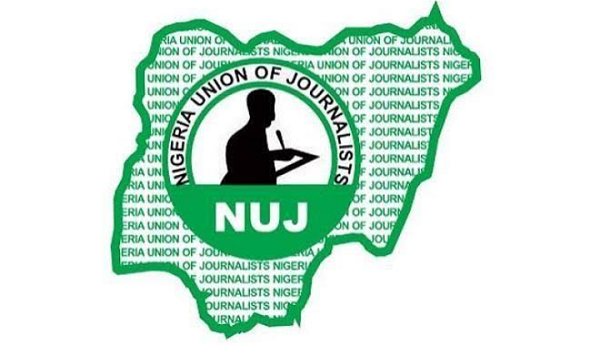The roundtable on deepening media professionalism through co-regulation was convened by the Newspaper Proprietors’ Association of Nigeria (NPAN) in conjunction with the Nigerian Guild of Editors (NGE), Nigeria Union of Journalists (NUJ), Broadcasting Organisations of Nigeria (BON), and the Guild of Corporate Online Publishers (GOCOP).
The media roundtable was convened within the context of the imperative of a strategic response to the challenge of institutionalizing self-regulatory mechanisms by the media for the media. This is especially against the background of attacks on press freedom and media independence including through legislation by the government following the wrong perception that the media is unwilling to regulate itself; the poor state of compliance with ethical and professional standards by some journalists and editors; and the pollution of the information sphere by disinformation and misinformation.
The aim of the roundtable, supported by Daria Media and the MacArthur Foundation, was to obtain media stakeholders’ buy-in of the Ombudsman framework and the revised Code of Ethics of Journalists in Nigeria. The roundtable was well attended by eminent media-industry leaders including Chief Olusegun Osoba, CON, FNGE, Life Patron, NPAN, and former Governor of Ogun State; Mr Sam Amuka-Pemu, OON, FNGE, (Uncle Sam), Publisher of Vanguard Newspapers; Lady Maiden Alex- Ibru, Publisher of The Guardian; Mr. Ray Ekpu, FNGE, former President of NPAN//Council member; Mr. Nduka Obaigbena, CON, FNGE, former president of NPAN/Life Patron and Publisher, ThisDay Newspapers /proprietor ARISE TV; Prince Dennis Sami, NPAN Council member and Publisher of The Nigerian Pilot, Mrs. Angela Emuwa, Chairman of Punch Newspapers and Mr. Lade Bonuola, FNGE, former Managing Director of The Guardian.
The dignitaries included Executive Secretary of the Nigeria Press Council, NPC, Mr. Francis Nwosu, who delivered the goodwill message of the Hon. Minister of Information and Culture, Alhaji Lai Mohammed; Professor Ralph Akinfeleye, FNGE, University of Lagos; Mr. Ted Iwere, FNGE, Founder of SME Media and other publishers, Editors-in-Chief and Editors.
Also present were the President of the NGE, Mr. Mustapha Isa; President of the Nigeria Union of Journalists (NUJ), Chief Chris Isiguzo (MFR); Executive Secretary of the Broadcasting Organisations of Nigeria (BON), Dr. Yemisi Bamgbose; President of the Guild of Corporate Online Publishers, Ms. Maureen Chigbo; journalists, other media professionals and representatives of media support groups.
Presentations:
The roundtable had two technical sessions at which presentations were made on “Pathway to co-regulation through an Ombudsman framework” by Mr. Azu Ishiekwene, FNGE, Editor-In-Chief, LEADERSHIP. His presentation was based on the report of the committee of the Nigeria Press Organisation (NPO) comprising NPAN, NGE and NUJ instituted in May 2021. The committee was mandated to develop a framework for a generally acceptable, workable and trusted self-regulatory platform for the industry, both at the local and central levels.
The second presentation was on “A guide through the revised Code of Ethics for Nigerian journalists” by Mr. Lanre Idowu, FNGE, CEO/ Editor- in-Chief, Diamond Publications and Founder, Diamond Awards for Media Excellence (DAME) Trust Fund.
The revision of the existing code was predicated on the observation that the existing 1998 code is “outdated, not robust enough, (and) too general in nature.”
Resolutions
Following exhaustive deliberations on the two presentations, the roundtable resolved as follows.
On the Ombudsman
1.That the proposed co-regulation is a welcome development to address ethical and professional concerns in the industry, but the key to its success would be a workable enforcement mechanism;
2.That the NPO comprising NPAN, NGE and NUJ, along with BON, would work together to make the co-regulation system effective particularly through the establishment of the ombudsman at local and central levels;
- That efforts would be made to avoid the creation of bureaucratic structures that may have high cost implications and therefore constitute obstacles to the efficient operation of the ombudsman;
- That sanctions for the violation of ethical codes and professional standards shall be determined by the Ombudsman, guided by the regulation;
- That media professional bodies and associations shall partner with media organisations to give wide publicity to the decisions of the Ombudsman.
On the revised Code of Ethics of Journalists in Nigeria
- That a bill of rights would be incorporated into the revised code to address concerns over some industry practises that have the tendency to undermine the welfare and safety of journalists;
2.That the revised code shall protect investigative journalism by making the public interest exception to instances where undercover methods may be used to obtain information;
3.That the revised code shall distinguish between paid content and editorial content to preserve editorial integrity; and
- A new clause would be inserted to obligate journalists to promote the right of the people to know, freedom of the press and responsibility.


Comment here